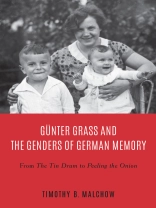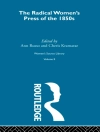Günter Grass (1927-2015) was a fixture at the heart of German cultural life, a self-styled spokesman of the
Kulturnation (cultural nation) who imagined it linking him to canonical male literary figures and their authority. He was also the object of valid feminist criticism: a rigid conception of gender permeates his works, belying his professed skepticism toward ideologies. A heterosexual male, Grass lent his representative persona a natural veneer by appropriating his era’s gendered discursive constructs, including
Heimat, the
Bildungsroman, and narratives about German wartime victims and perpetrators. Such appropriation elevated his remembering artist’s masculinity above that of the status quo’s defenders and exploiters of memory.
This book is the first to evaluate the connection between gender and memory in Grass’s oeuvre and its legacy in light of current concerns about male privilege. It highlights his breakthrough novel
The Tin Drum (1959) and his memoir
Peeling the Onion (2006). The former establishes the gendered persona that Grass would develop in subsequent decades to relate contemporary issues to Nazi-era memories. The latter reclaims the novel’s autobiographical material but fails to account for his decades-long silence about having served in the Nazi Waffen-SS. Instead, it foregrounds his mourning for his mother, allowing for a more personal reading of his oeuvre and its gendered imagery.
Inhoudsopgave
Acknowledgments
Abbreviations, Translations, and Transcriptions
Introduction
Grass’s Biography in Context: 1927-1959
Corporeal Memory, Trauma, and Art in
The Tin Drum
Bildung, Heimat, and Gendered Modes of German Memory in
The Tin Drum
A Patriarchal Arbiter of German Cultural Memory and His Feminized Others: Leveling
Bildung, Opening
Heimat, and Championing Art from the 1960s to the New Millennium
Grass’s Early Life Once Again: Broken Silence, Mourning, and Gendered Approaches to Memory in
Peeling the Onion
Epilogue
Works Cited
Over de auteur
TIMOTHY B. MALCHOW is Professor of German at Valparaiso University.












